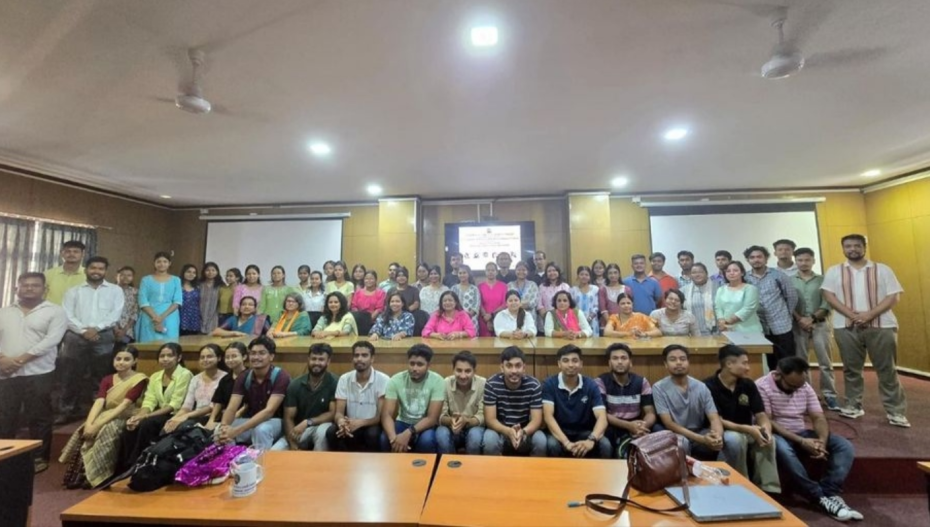The Assam Women Journalists’ Forum (AWJF) on Thursday conducted a training session on “Reporting Climate Change and Gender” as part of its inaugural initiative in partnership with the Department of Communication and Journalism at Gauhati University.
It has been observed in recent years that several regions of the country have experienced devastation due to climate change. The Northeast and Assam in particular are at risk from the destruction brought on by changing climate and weather patterns.
Earthquakes and floods occur often and have an immense impact on human lives and livelihoods. The resource persons, who are all AWJF members, emphasised during the event the specific knowledge and abilities needed to report on gender and climate change.
Dr Bharati Bharali, Assistant Professor in the Department of Communication and Journalism, welcomed the resource persons and commended AWJF’s initiative, while also highlighting the department’s recent programmes.
In her inaugural remarks, AWJF President and PTI Bureau Chief Durba Ghosh noted that, after a span of many years, “we still don’t have a woman editor in mainstream media in Assam.”
“We want that to change, hopefully, in the next 10 years,” she added.
According to the statement, Jayantakrishna Sarmah, Dean of Faculty of Arts, and Dhrubajyoti Saharia, Secretary of University Classes, both attended the session and contributed significantly.
The resource persons also discussed how local communities are adjusting to climate change and how they are the ones suffering the most from it. Senior journalists Ratna Bharali and Mubina Akhtar emphasised a few of their historic works to put the impact of climate change on livelihood and living in this part of the world in context.
Mubina Akhtar shed light on how Assam’s Muga heritage thread is threatened by climate change and the benefits of her reporting on the subject.
To illustrate how climate change is affecting rural areas, Ratna Bharali Talukdar presented examples of labour and displacement from recent times. She pointed out that although women frequently lack access to local resources, they also possess better adaptability strategies.
AWJF Vice-President Samim Sultana discussed pay parity, the reality that women still do not receive “equal pay for equal work,” and the need for gender-sensitive reporting in newsrooms.
Independent journalist Angana Chakraborty discussed the “inequality of heat”—the way that women from the most vulnerable communities are disproportionately affected by climate change and how they respond to it. She used two articles to illustrate the various approaches to reporting on the gendered impact of climate change, one in an urban setting and the other in a rural one.
Another independent journalist, Chandrani Sinha, spoke on resilience to climate change, bringing local stories to a global audience, and how political unrest may affect climate financing, using Bangladesh as an example.
In order to better prepare students to handle the demands of contemporary journalism, the session is an initiative by AWJF to fill the knowledge gap between the classroom and the newsroom.
AWJF is a network of women journalists in the state that serves as a forum for their professional development and a resource for aspiring media professionals.
The Forum’s multiple objectives include helping journalism students develop their skills and bridging the gap between academics and industry by working with various mass communication departments and institutes.
Also Read: Ahmedabad Hit-And-Run: Minor Who Killed Security Guard Let Off By Juvenile Board












